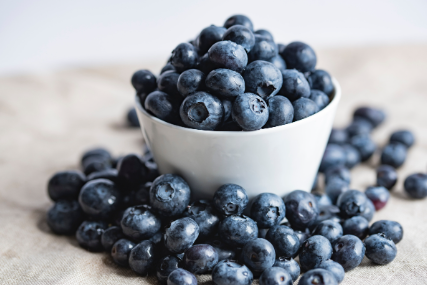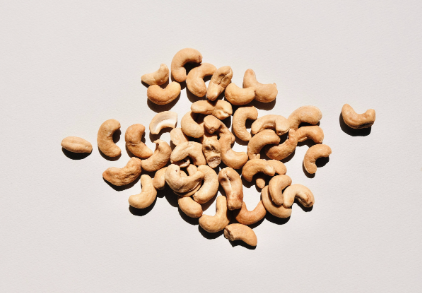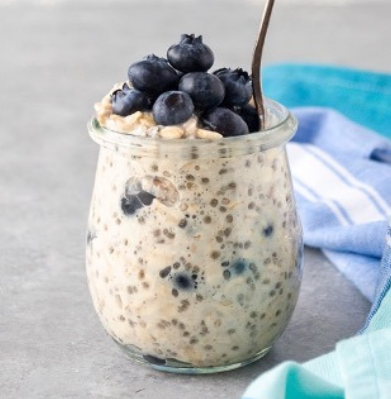Inflammation is a sign that the immune system is fighting an infection, illness, or injury that could be due to germs, wounds, allergens, or other causes. When we think about signs of inflammation, we typically think of redness, swelling, and pain, but sometimes inflammation can also occur on the inside of our bodies. This means that signs of inflammation are not always obvious from the outside.

Peyton Millard, 2021 Dietetic Intern
Friday, August 26, 2022
What is inflammation?
Inflammation is a sign that the immune system is fighting an infection, illness, or injury that could be due to germs, wounds, allergens, or other causes. When we think about signs of inflammation, we typically think of redness, swelling, and pain, but sometimes inflammation can also occur on the inside of our bodies. This means that signs of inflammation are not always obvious from the outside.
Inflammation can be beneficial as it is a natural acute process that helps our body heal, however, inflammation is harmful if it becomes chronic. Chronic inflammation may last for weeks, months, or years. Whatever the cause, long-term chronic inflammation may damage the body’s DNA which can then increase the risk for cancer. Long-term inflammation also poses the potential risk of developing heart disease, type 2 diabetes, arthritis, and other chronic inflammatory diseases.

What's the buzz on anti-inflammatory foods?
Other factors that might play a role in inflammation: not getting adequate sleep, not being active throughout the day, carrying excess weight, and chronic stress.
It is encouraged that you consume foods that contain antioxidants such as berries and artichokes as these work by reducing levels of free radicals in the body which cause damage and contribute to disease.
Specifically, fruits and vegetables have natural components in them called phytonutrients that may help protect against inflammation.
What we know about foods and inflammation
Researchers are still figuring out how the foods we eat may impact the inflammation in our bodies. It appears that eating a variety of nutrients in food may help reduce inflammation in the body. This means that what we choose to eat may help prevent chronic inflammation and may even help us to manage the inflammation that is present.
Inflammation and mental health
There is new research stating that those on a pro-inflammatory (high inflammation) diet have an increased likelihood of being diagnosed with depression or displaying depressive symptoms when compared to those on an anti-inflammatory diet. Severe mental illnesses are associated with increased inflammation, therefore pro-inflammatory foods could potentially contribute to the inflammatory process and inflammation present in these individuals.
Five dietary approaches that may help reduce inflammation in the body
- Make fruits and vegetables half of your plate. This includes fresh, frozen, canned and dried. Just be sure to find products that have no added sugars and have lower amounts of sodium.
- Choose protein wisely. 5-6 ounces per day is recommended. Choose lean proteins like chicken and turkey and select fatty fish containing omega-3s a couple of times a week. Include low-fat or fat-free dairy products and add in beans and lentils.
- Choose healthy fats. Consume monounsaturated fats, such as nuts or avocados, and omega-3 fatty acids, such as in salmon and flax seeds.
- Select whole grains. Include a variety such as brown rice and quinoa.
- Experiment with fresh herbs and spices. Try using different spices to infuse flavor into your dishes instead of adding salt.
Pro-Inflammatory Foods
- Sugary beverages such as sugar-sweetened drinks
- Refined carbohydrates like white bread and white rice
- Desserts
- Processed meats such as hot dogs or sausages
- Trans fat or foods with partially hydrogenated ingredients
- Alcohol

Should I follow the anti-inflammatory diet?
Overall, the anti-inflammatory diet incorporates fruits and vegetables, lean meats/plant-proteins and fish, low-fat or fat-free dairy, and whole grains which falls in line with the recommendations from the United States Department of Agriculture (USDA).
The anti-inflammatory diet also encourages limiting added sugars, trans fat, processed snacks, and alcohol which is also what the USDA recommends. Incorporating some of these tips and tricks into your own dietary pattern could be beneficial and could benefit your health regardless of whether or not they help reduce inflammation.
Today's Recipe
Blueberry Overnight Oats

Servings: 3
Nutrition facts per serving: Calories: 295 | Fat: 11g | Sodium: 79mg | Carbohydrates: 40g | Sugar: 16g | Protein: 11g
Ingredients:
- 1 cup old fashioned rolled oats
- 1 TBSP chia seeds
- 1 3/4 cups 1% milk
- 1 1/2 TBSP pure maple syrup
- 1/2 cup fresh blueberries
- 1 handful of walnuts (optional)
Directions:
First, place the oats, chia seeds, 1% milk, and maple syrup in a large bowl. Stir together until well combined. Cover with plastic wrap and store in the fridge overnight. In the morning, stir in the blueberries and divide them into three containers or jars. Top with walnuts, if desired, and enjoy!
Recipe and photo from flavorthemoments.com.
References
Gordon, B. (n.d.). Can Diet Help with Inflammation? Retrieved from https://www.eatright.org/health/wellness/preventing-illness/can-diet-help-with-inflammation
Kolb. H., & Mandrup-Poulsen, T. (2010). The global diabetes epidemic as a consequence of lifestyle-induced low-grade inflammation. Obesity and Metabolism,7(4). 49-50. doi:10.14341/2071-8713-5089
Shivappa, N., Godos, J., Hébert, J., Wirth, M., Piuri, G., Speciani, A., & Grosso, G. (2018). Dietary Inflammatory Index and Cardiovascular Risk and Mortality- Meta-Analysis. Nutrients,10(2), 200. doi:10.3390/nu0020200
Tolkien, K., Bradburn, S., © Murgatroyd, C. (2019). An anti-inflammatory diet as a potential intervention for depressive disorders: A systematic review and meta-analysis. Clinical Nutrition. 38G). 2045-2052. doi:10.1016/j.clnu.2018.11.007



